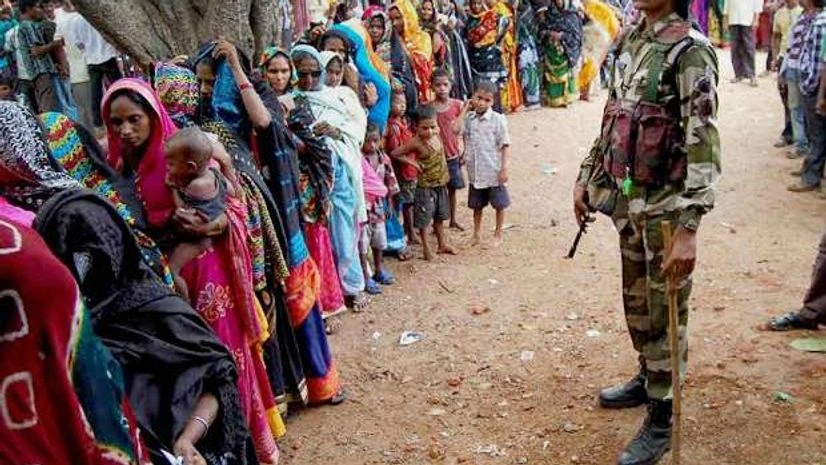Books on contemporary India tell us that the first instance of what was to become booth capturing took place way back in 1957 in Begusarai, a district in central Bihar. Even as the second general elections were underway, some goons belonging to one political party blocked supporters from a rival party to cast their votes.
It was to start a trend that assumed monstrous proportion in years to come. In early days of rigging or booth capturing in Bihar, politicians used to hire criminals to do the job for a fee or with the assurance of immunity from police harassment. Having tasted blood, criminals stopped outsourcing their skills for others and started entering the fray themselves. It was a kind of evolution that gave an altogether new meaning to the concept of criminalisation of politics.
Compared to Bihar, West Bengal has a relatively recent history of booth capturing and consequent poll violence. What is known as booth capturing in Bihar is called scientific rigging in neighbouring West Bengal. There is hardly anything scientific about it though. It is all brute force in all its ugly dimensions.
However, there is one crucial difference between the way rigging used to take place in Bihar (fortunately not anymore thanks to some good work done by the Election Commission) and what continues to happen in West Bengal.
In Bihar, it used to be done by the people who had no known party affiliations. In West Bengal, on the other hand, party workers are entrusted with this crucial task. Party workers therefore have to be kept in good humour all the time. This is why the state has to dole out patronage. The Left rule was adept in doing that and Trinamool Congress top brass learnt the trick in no time.
Also Read
After each polling day in the current phase of assembly elections in West Bengal, the Election Commission is inundated with complaints, some frivolous and many of them genuine. Complaints range from ghost voters to instances of intimidation
Why are elections in West Bengal so prone to violence? Politics is a lucrative business we all know that. Political scientist Kanchan Chandra has argued in one of the recent papers that returns, status and power even at entry level elected position is much higher compared to entry level positions in any other profession. But elected position in politics has premium value throughout the country. Why so much premium is attached to the elections in West Bengal?
There is no conclusive answer to this. But a Kolkata-based social scientist who has done extensive research in rural areas of West Bengal and Bihar offers some clue. He told me recently that during the initial years of the Left rule in West Bengal, rural economy took off, generating investible surplus. The people with surplus did not have any avenue to invest that money. The investible surplus found its way into local politics.
What he is hinting at is that investment in local politics meant investing in building a large network to ensure control over local contract of roads, bridges, flood relief programmes etc. Since the local politics has to draw its sustenance from state leadership, winning elections, by hook or by crook, becomes very important for them. No wonder the owners of these local networks resort to measures like intimidation to violence to have favourable election outcome. After all it is a question of securing returns on investment made.

)
